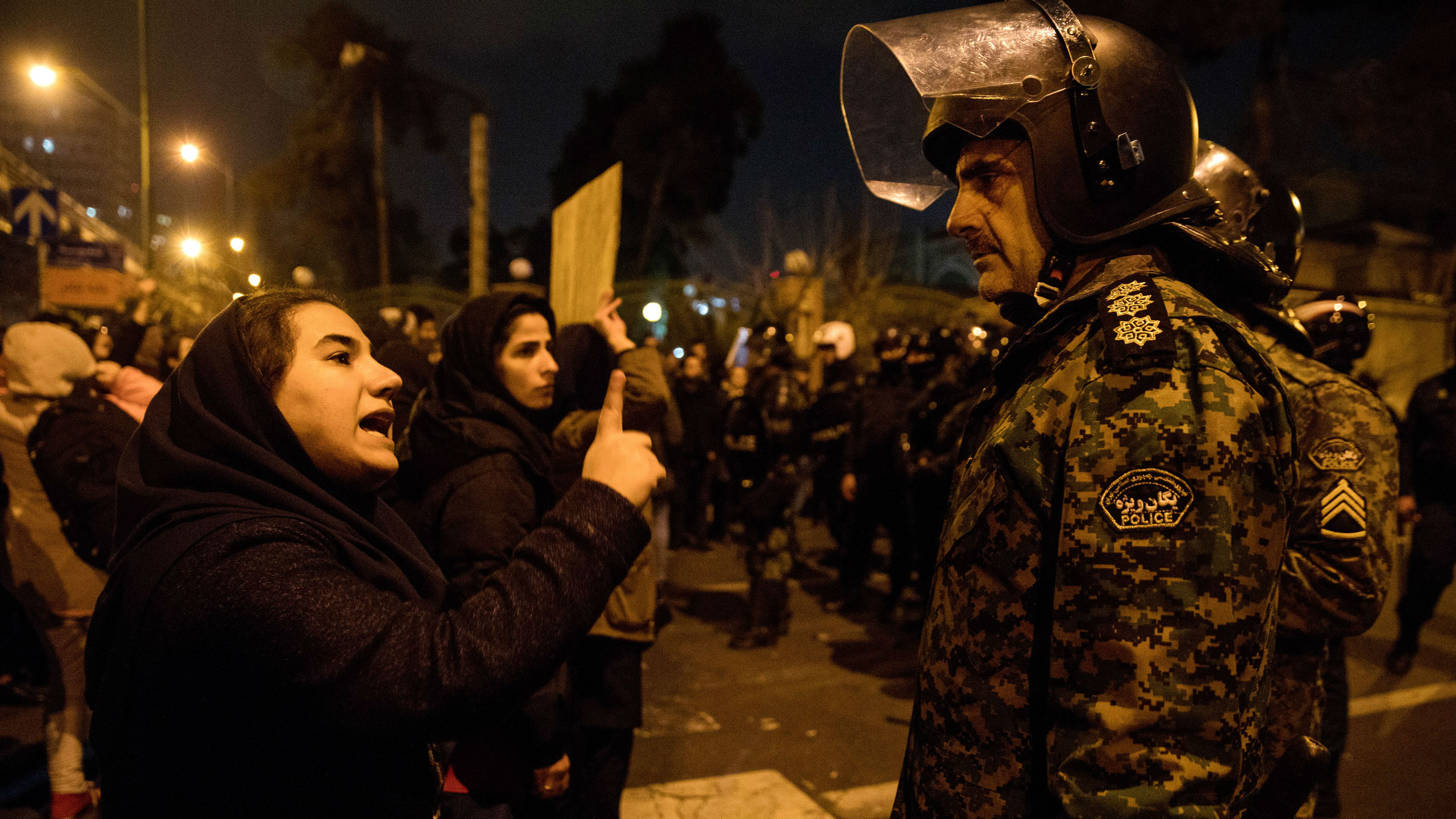How Iran’s media are portraying the US fallout
Newspapers lament ‘a sky full of sadness’ after Tehran admits to shooting down Ukrainian jet

A free daily email with the biggest news stories of the day – and the best features from TheWeek.com
You are now subscribed
Your newsletter sign-up was successful
Footage of angry protests in Tehran over the weekend were in marked contrast to the images of a unified country in mourning for the assassinated general Qasem Soleimani only a week before.
Iran’s media displayed widespread reverence for Soleimani, who was killed in a US drone strike in Iraq on 3 January.
State television claimed that “millions” of Iranians attended his funeral, with images of Supreme Leader Ayatollah Ali Khamenei weeping over his casket appearing on newspapers across the world.
The Week
Escape your echo chamber. Get the facts behind the news, plus analysis from multiple perspectives.

Sign up for The Week's Free Newsletters
From our morning news briefing to a weekly Good News Newsletter, get the best of The Week delivered directly to your inbox.
From our morning news briefing to a weekly Good News Newsletter, get the best of The Week delivered directly to your inbox.
Critics, such as Masih Alinejad, an Iranian journalist writing in The Washington Post, said many mourners were pressured to attend the nationwide services and others were quietly happy about his death.
Nevertheless, Iran Daily described the killing of Soleimani as “the most dramatic escalation yet in spiraling tensions between Iran and the United States”.
In an exclusive interview with the newspaper a few days after the drone strike, Iranian politician Gholamali Jafarzadeh Imanabadi called it a “declaration of war” from the US and said that revenge would be severe. “Iran will retaliate in a way that Americans won’t imagine,” he warned.
Iran’s subsequent ballistic missile attack on US forces in Iraq was “supposed to bring catharsis and demonstrate the regime’s power”, says The Guardian’s international correspondent Michael Safi. Then a Ukrainian passenger jet flying out of Tehran crashed on Wednesday, killing all 176 people on board.
A free daily email with the biggest news stories of the day – and the best features from TheWeek.com
At first, Iran state media said the Boeing 737 had crashed because of technical problems, but officials admitted on Saturday morning that an Iranian missile had accidentally shot down the plane.
Two state TV hosts reportedly resigned over the false reporting of the incident and several Iranian media outlets called for those responsible to resign.
“The hard-line daily Vatan-e Emrouz bore the front-page headline ‘A sky full of sadness’, while the Hamshahri daily went with ‘Shame’,” reports Euronews.
–––––––––––––––––––––––––––––––For a round-up of the most important stories from around the world - and a concise, refreshing and balanced take on the week’s news agenda - try The Week magazine. Start your trial subscription today –––––––––––––––––––––––––––––––
According to the foreign press, chants of “death to the USA” on the streets of Tehran have been replaced by chants of “death to the dictator”, an apparent reference to Supreme Leader Khamenei. Footage on social media showed protesters fleeing from tear gas as authorities appeared to detain members of the public - and posters of Soleimani were reportedly torn down.
Yet the Tasnim News Agency today focuses on claims by Iranian officials that America’s “terrorist forces” are responsible for instability in the region.
It also says the arrest of British ambassador Robert Macaire at the weekend was because he was organising and provoking protesters - whereas the UK Foreign Office called his detention a “flagrant violation” of international law.
And in an opinion piece for the Tehran Times, Mohammad Ghaderi argues that Donald Trump made a “huge mistake” by assassinating Soleimani. He says it was “purely due to his personal reasons”, an effort to divert US media attention from other transgressions ahead of the 2020 presidential election.
“The Americans know that they are the exciter of the dangerous adventure in the region, but they will not be the ones who determine how to end the game,” he says.
However, his colleague Salman Parviz warns that “a war would be a disaster for the world in general and no winners are expected out of it”.
The precarious situation reminds him of a visit to a zoo in India, where a cobra snuck into a jaguar’s enclosure. The snake was killed but not before it had fatally bitten the giant cat.
The US is the cobra, Iran is the jaguar and the world powers are the zookeeper, he says. “In this case, however, the zookeeper is not too late to save the day.”